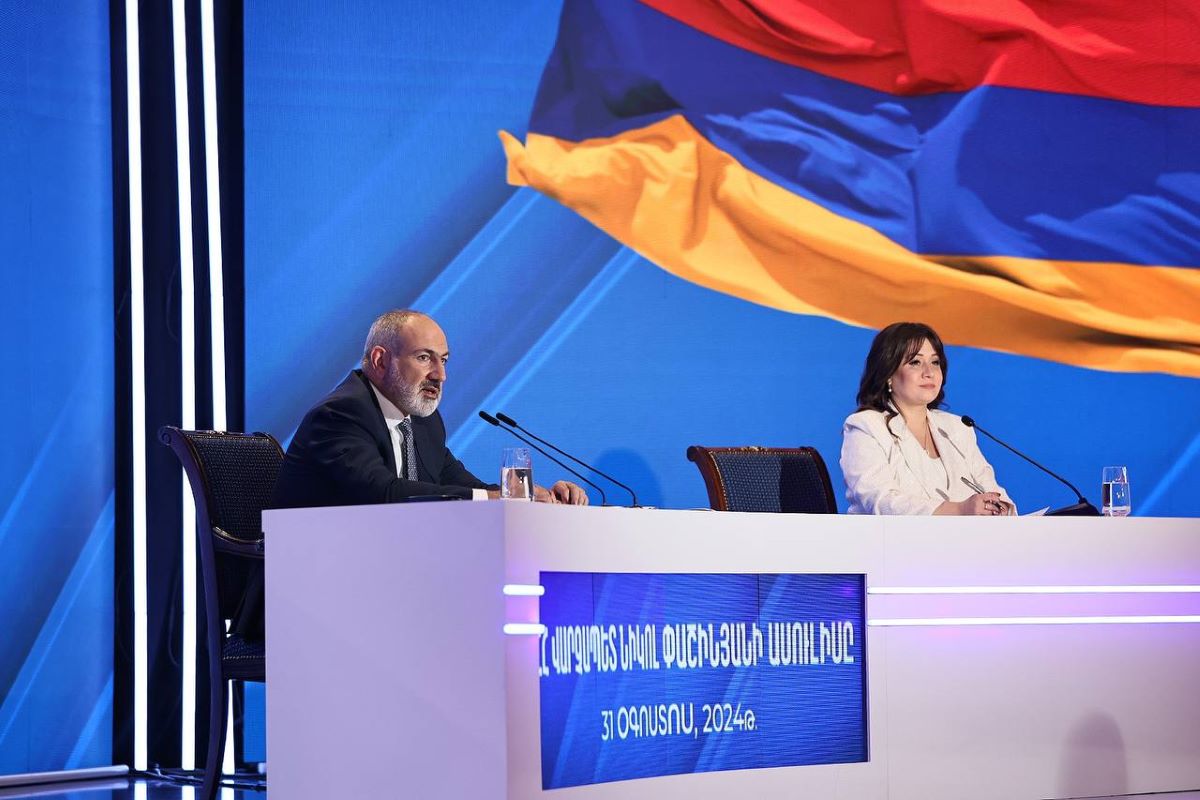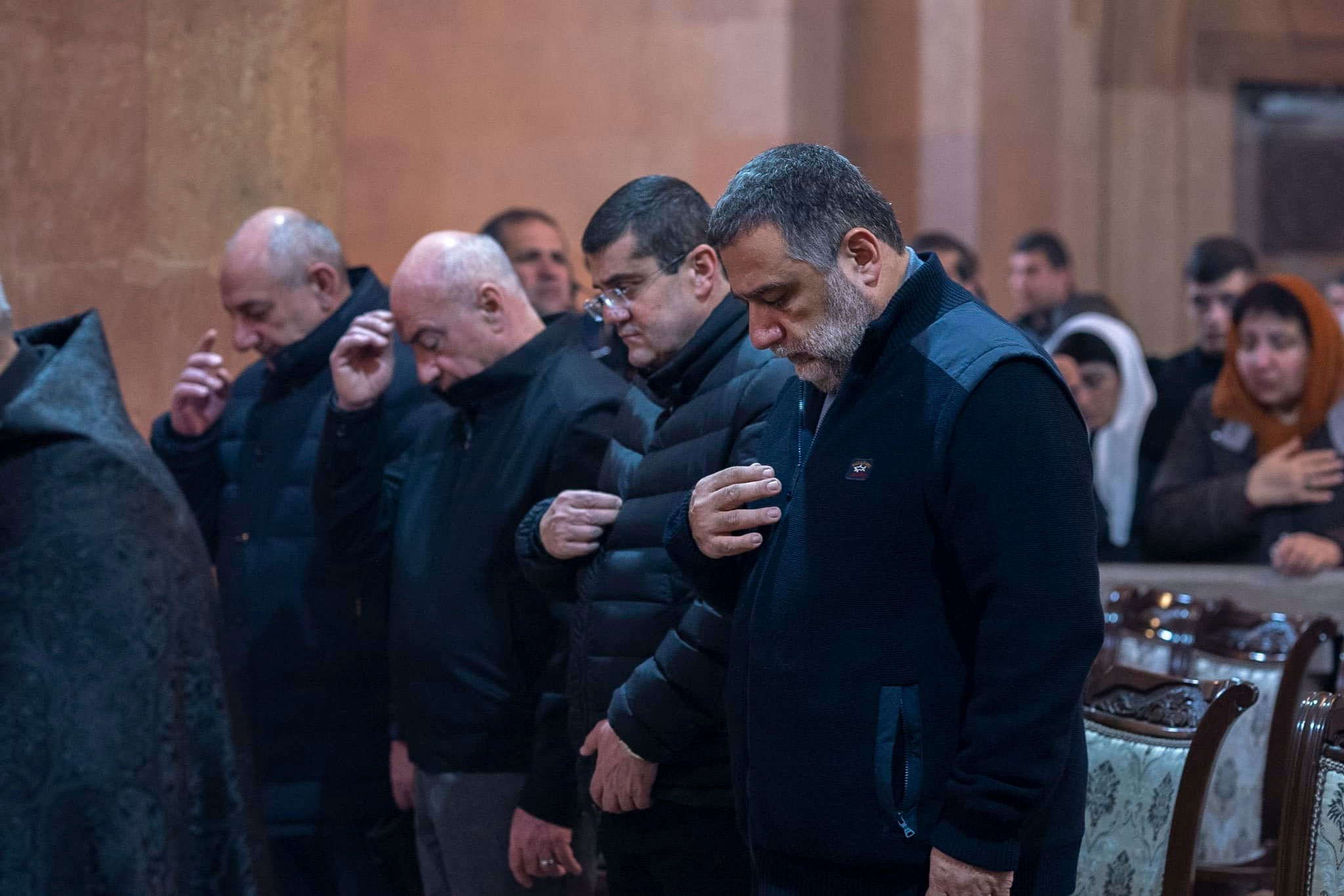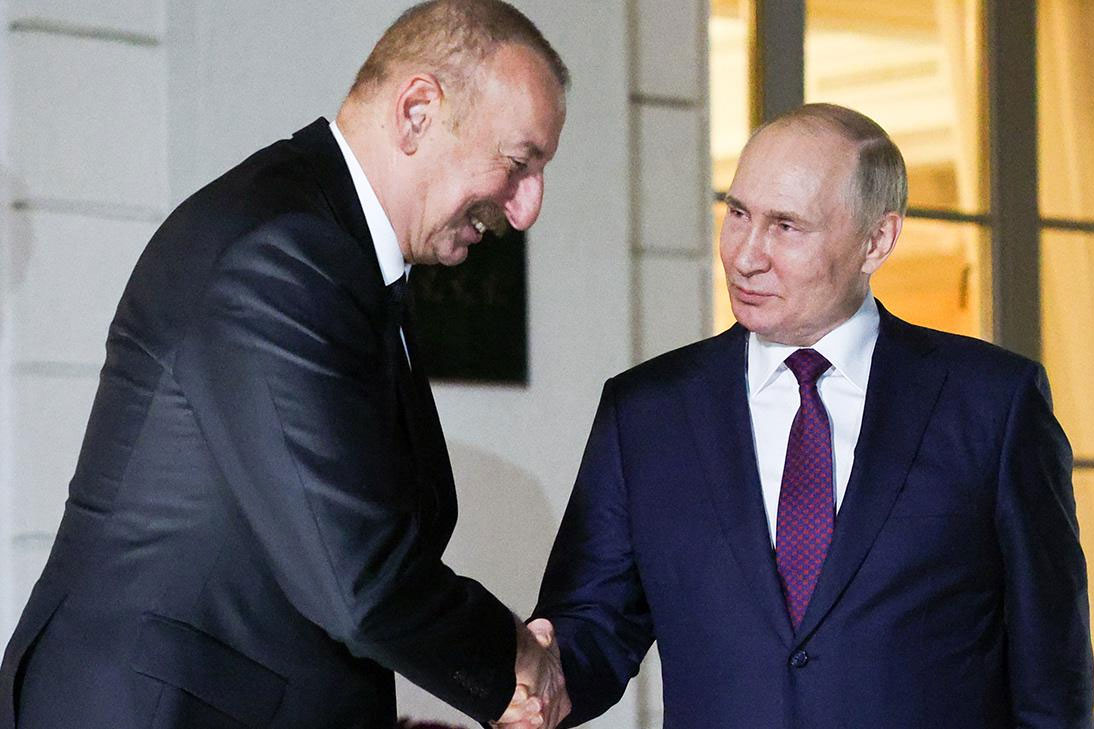"Pashinyan's proposal to Baku is not in Armenia's best interest." Opinion from Yerevan
What is Pashinyan proposing to Baku?
“If Armenia and Azerbaijan continue to insist on resolving all major issues before signing a peace agreement, we will never sign it,” Armenian Prime Minister Nikol Pashinyan told parliament on September 11.
Pashinyan once again affirmed his readiness to sign a peace treaty based on already agreed-upon provisions. According to him, 13 out of 16 articles have been fully agreed upon, with three partially settled.
He emphasized that Yerevan is proposing Baku sign a treaty encompassing all 16 articles.
The prime minister also voiced his proposal to sign the agreed-upon text the day before, during the “Yerevan Dialogue” international conference. This time, a response came from Baku immediately after Pashinyan’s statement.
“Armenian officials’ calls to sign a peace agreement while leaving out unresolved parts, as well as efforts to postpone solving existing issues in bilateral relations, are unacceptable,” said Aykhan Hajizadeh, spokesperson for Azerbaijan’s Foreign Ministry.
“Baku is rejecting Yerevan’s proposal because it is not genuinely seeking peace and is adopting a maximalist approach,” says political analyst Gurgan Simonyan. “At the same time, Nikol Pashinyan’s proposal is disadvantageous for Armenia itself.“
“If Baku agreed, Armenia would face significant long-term problems due to unresolved issues. If the peace treaty is ratified but the realities remain unchanged, the treaty will be meaningless. It will just be a piece of paper,” he told JAMnews.
In late August, during a press conference, Pashinyan first proposed signing a peace treaty based on agreed articles, deferring discussions on unresolved issues. Armenia submitted this as the 10th draft of the treaty to Baku, which rejected it.
- Yerevan and Baku to exclude one contentious issue from the peace agreement. What’s next?
- Yerevan and Baku to exclude one contentious issue from the peace agreement. What’s next?
- “Dissolution of Minsk Group aligns with Yerevan’s interests” – Armenian political scientist
Yerevan and Baku hold the ‘controlling stake’ for signing the agreement
At the opening ceremony of the international conference “Yerevan Dialogue,” Armenian Prime Minister Nikol Pashinyan detailed his proposal for signing the agreed-upon provisions of the treaty. He informed participants that 13 articles and the preamble of the draft have been fully agreed upon, while three articles have been partially settled.
Pashinyan stated that Armenia and Azerbaijan already have the “controlling stake” for a peace treaty and that it is ready to be signed. He emphasized that he is unaware of any treaty that resolves all issues:
“There are no countries whose relations are governed by a single treaty. But it is crucial to establish the foundation or, more precisely, not to reject the foundation already built through our years of negotiations.”
Which points of the peace treaty have been agreed upon?
During his speech at the conference, the prime minister stated that the agreed-upon points of the peace treaty “include all fundamental provisions for establishing relations recognized internationally.” Pashinyan then provided the following details:
“One of the agreed articles includes a mechanism allowing both sides to continue discussions through a joint mechanism. Additionally, the currently agreed-upon portion of the treaty includes a provision for establishing diplomatic relations between Armenia and Azerbaijan.”
Baku insists on clarifying controversial issues
Azerbaijan’s Foreign Ministry has criticized Pashinyan’s statements as “distorting reality.” Baku has deemed the signing of a peace agreement without resolving key issues unacceptable:
“The main condition for signing a genuine and sustainable peace agreement is the cessation of Armenia’s ongoing territorial claims against Azerbaijan, as outlined in its numerous legal and political documents, particularly its constitution, which openly references Armenia’s Declaration of Independence calling for the reunification of Armenia and Nagorno-Karabakh,” said Foreign Ministry spokesperson Aykhan Hajizadeh.
He also emphasized that no international treaty can override a country’s constitution.
In Yerevan, however, constitutional changes are viewed as an internal matter. Armenian authorities have repeatedly stated that the peace treaty includes a provision stipulating that “neither side can invoke its domestic legislation to avoid fulfilling the obligations outlined in the international treaty.”
According to Azerbaijan’s Foreign Ministry spokesperson, all contentious issues must be clarified in the draft to ensure the stability and success of the agreement.
Among these issues, he cited the dissolution of the Minsk Group, changes to Armenia’s constitution, and the unblocking of communications.
He noted that for four years, Armenia has not opened communications for Azerbaijan’s access to its exclave of Nakhchivan, despite “written and signed commitments.”
The issue concerns the statement from November 9, 2020. Baku and Moscow are demanding the implementation of the ninth point of the document. In Armenia, it is believed that Azerbaijan and Russia are misinterpreting this point while failing to fulfill their own obligations under the same document. Notably, one of the most contentious issues for Armenia is the return of prisoners of war, hostages, and other individuals held in Baku.
However, Azerbaijan has stated that it has “no obligations to release war criminals and members of the separatist regime.”
Commentary
“Azerbaijan wants everything and wants it now, operating on an ‘all or nothing’ principle. Baku is boycotting all proposals from the Armenian side due to its maximalist stance. They seek the nonexistence and destruction of Armenia, and in pursuing this goal, Azerbaijan rejects even proposals that are humiliating and dangerous for Armenia,” says political analyst Gurgan Simonyan.
He believes that Pashinyan needs to reassess his misguided military-political course to bolster Armenia’s resilience.
“Azerbaijan is not inclined to build peaceful relations with Armenia. The Armenian authorities see the signing of a peace treaty through the lens of the 2026 parliamentary elections, viewing it as a component of their election campaign. The ruling team is eager to resolve the issue to present it as a completed task, but they will not succeed.”
The political analyst does not rule out external pressure, particularly from the United States. Simonyan suggests that Democrats want to present the signing of a peace treaty between Armenia and Azerbaijan as a victory in their electoral campaigns.
“Pashinyan cannot grasp that achieving peace is not a solo dance but a partnership. You cannot advance a peace agenda if your opponent does not support it,” insists Gurgan Simonyan.
Commenting on Armenian Prime Minister Pashinyan’s statement about the agreed provision for creating a “joint mechanism for continuing discussions” on the treaty text, the expert said:
“These contacts will undoubtedly occur within the context of a proxy war, which is why they are dangerous. Azerbaijan has not abandoned its policy of military solutions. Armenian authorities are deluding themselves, thinking that the peace agenda is a reality, but it is a false agenda.“
When asked why Yerevan has not withdrawn its signature from the November 9, 2020, statement, Simonyan responded:
“Armenia is not taking this step because it is succumbing to pressure, provocations, and threats. There are risks involved, but by withdrawing our signature, we would deprive our opponents of a legitimate basis to demand anything from us, especially since they have not fulfilled any of their obligations under the same document.”





















